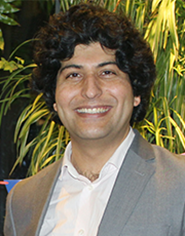
Research fellow at the Department of Molecular Biology investigating the role of bacterial pore-forming toxins in the pathogenesis of the host.
My current research investigates the role of bacterial pore-forming toxins in the pathogenesis of both human and environmental hosts. In 2022, I started my independent research group.
In our research group, the goal is to gain a comprehensive understanding of the molecular mechanisms involved in the interaction between different bacterial species and host cells, which will provide molecular insights into the underlying causes of infectious diseases. This will help us develop new therapeutics to treat severe infections. In addition, we use bacteria pore-forming toxins as a biotechnological tool to investigate different cellular processes including cell death mechanisms, endocytosis, autophagy, and targeting oncogenic signaling in cancer cells, which will help us explore the anticancer potential of pore-forming toxins, providing valuable insights into their use as novel therapeutics.
We use an interdisciplinary approach to tackle key questions in basic and translational research.
Biography
Aftab Nadeem received his Master's degree in Biochemistry from the University of Lahore, Pakistan. He then pursued an MS degree in Molecular Biology from Skövde University, Sweden. Subsequently, he completed his Ph.D. degree from Lund University, where he conducted research on understanding the cellular processes involved in HAMLET (human α-lactalbumin made lethal to tumor cells) induced tumor cell death. Following his Ph.D., he worked as a postdoctoral researcher at Umeå University where he investigated the role of bacteria pore-forming toxins and membrane vesicles in host pathogenesis. Since 2022, he leads an independent research group at the Department of Molecular Biology, Umeå University.